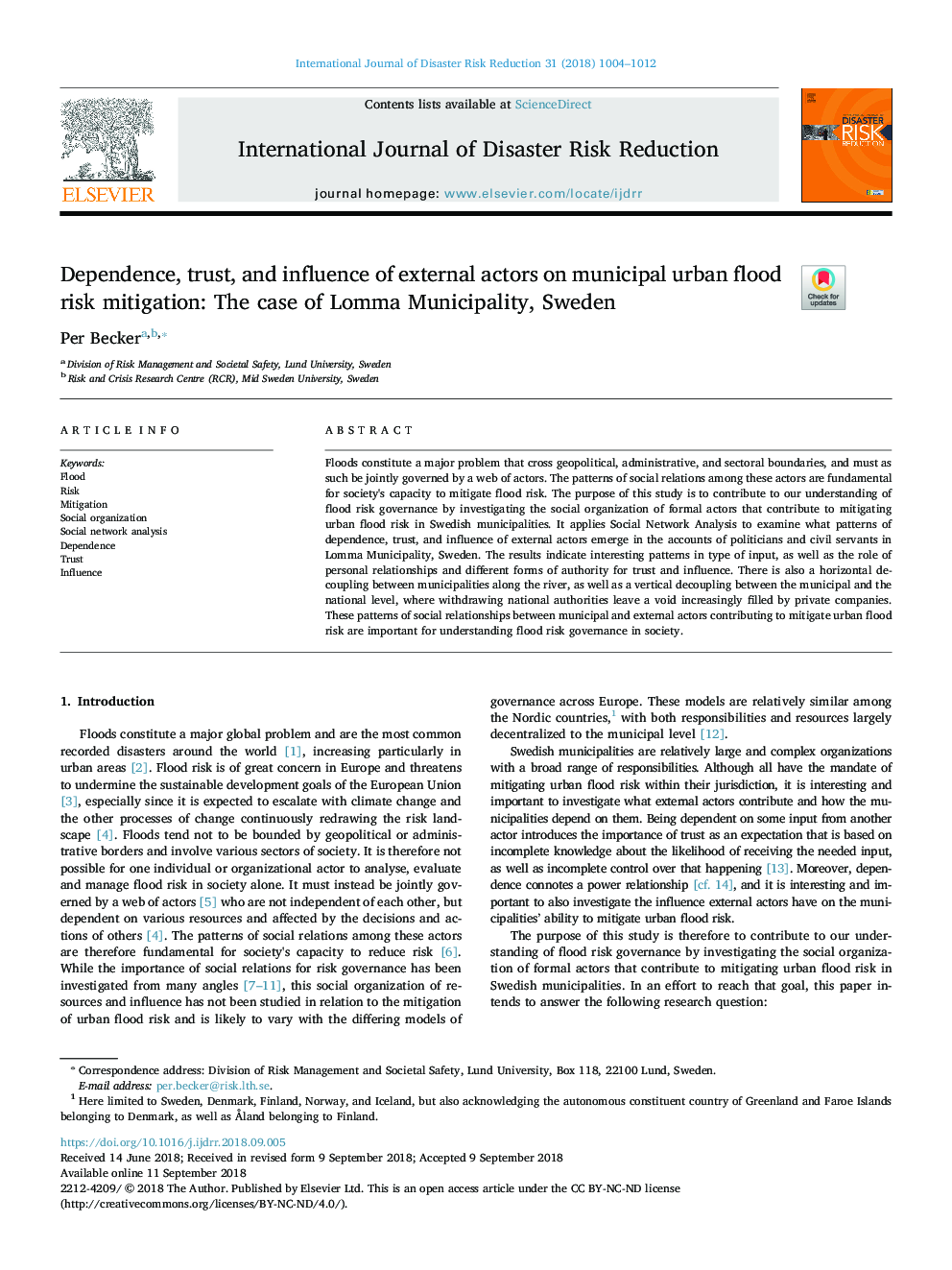| Article ID | Journal | Published Year | Pages | File Type |
|---|---|---|---|---|
| 11005303 | International Journal of Disaster Risk Reduction | 2018 | 9 Pages |
Abstract
Floods constitute a major problem that cross geopolitical, administrative, and sectoral boundaries, and must as such be jointly governed by a web of actors. The patterns of social relations among these actors are fundamental for society's capacity to mitigate flood risk. The purpose of this study is to contribute to our understanding of flood risk governance by investigating the social organization of formal actors that contribute to mitigating urban flood risk in Swedish municipalities. It applies Social Network Analysis to examine what patterns of dependence, trust, and influence of external actors emerge in the accounts of politicians and civil servants in Lomma Municipality, Sweden. The results indicate interesting patterns in type of input, as well as the role of personal relationships and different forms of authority for trust and influence. There is also a horizontal decoupling between municipalities along the river, as well as a vertical decoupling between the municipal and the national level, where withdrawing national authorities leave a void increasingly filled by private companies. These patterns of social relationships between municipal and external actors contributing to mitigate urban flood risk are important for understanding flood risk governance in society.
Related Topics
Physical Sciences and Engineering
Earth and Planetary Sciences
Geophysics
Authors
Per Becker,
